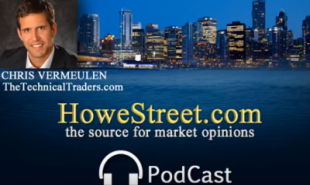
Um.
"Jews will not replace us," chanted neo-Nazis in Charlottesville, Virginia, on Friday night, and yesterday the President of the United States of America called them "very fine people." "Blood and soil," they also shouted, in what the President characterized as "protesting very quietly." "President Trump buoyed the white nationalist movement on Tuesday as no president has done in generations," noted the New York Times, when he defended the Charlottesville marchers and blamed "both sides" for the violence in which a Nazi sympathizer allegedly murdered a counter-protester. "Thank you President Trump for your honesty & courage to tell the truth," tweeted former Ku Klux Klan Imperial Wizard David Duke.
Trump's continuing support for white supremacy has made things awkward for the chief executive officers of big U.S. businesses, some of whom have started to abandon his largely symbolic councils of business leaders. (Because of the brokenness of our politics, Trump's continuing support for white supremacy has not made things especially awkward for the leaders of his political party, who mostly still back Trump.) Five business leaders have quit Trump's manufacturing council over the response to Charlottesville, though another council -- the "Strategic and Policy Forum," which is stocked with financial executives including Jamie Dimon of JPMorgan Chase & Co., Larry Fink of BlackRock Inc., and Stephen Schwarzman of Blackstone Group LP -- has not seen any defections yet.
Here you can read a story about "Why CEOs should stand up to Trump," explaining that "decisions by CEOs to embrace progressive political opinions have helped stock prices," but I have to confess that it seems odd to me to denounce Nazism out of fealty to shareholder value. You can just denounce Nazism because you're not a Nazi! This is a financial newsletter, but I have never assumed that the operations of capital are autonomous and self-executing, or that executives are robots who are programmed to maximize shareholder value to the exclusion of all other considerations. Corporations exist in society, and are not above society's concerns. Businesses operate through human beings, who remain human even in their roles as CEOs. One would hope.
Speaking of business leaders who have loaned their credibility to Trump, what's Gary Cohn up to? Cohn is the chairman of Trump's National Economic Council, a key White House aide, and a potential nominee to be the next chairman of the Federal Reserve Board. He "stood by uncomfortably" yesterday while Trump defended white supremacists. Here is a fairly hilarious endorsement of Cohn from William Dudley, who called Cohn a "reasonable candidate" to run the Fed. It's true! Cohn is not a traditional candidate to be the chairman of the Fed, or even a good candidate necessarily, but he is a reasonable candidate. He's not an economist, but he's sort of economist-shaped. You could imagine him saying economics-y things. In the Trump era, a "reasonable candidate" is about the best you can expect. Cohn would definitely be a better choice to run the Fed than Barron Trump, or David Duke. Here is where I would normally say "I hope that maybe getting to run the Fed is worth putting up with all the white supremacism," but I don't really. I hope he's ashamed.
How's Rajat Gupta doing?
Rajat Gupta, the former head of McKinsey & Co. and former Goldman Sachs Group Inc. director, who spent two years in prison for helping Raj Rajaratnam insider trade on Goldman stock, is out of prison and learning who his real friends are. They do not include McKinsey, which apparently practices an unusual form of corporate damnatio memoriae:
Mr. Gupta also failed in his effort to be reinstated in the McKinsey alumni directory. When criminal charges were first filed against the McKinsey senior partner Anil Kumar and later against Mr. Gupta, McKinsey moved to remove both names from the register.
So, wait, who was the managing director of McKinsey from 1994 to 2003, if Gupta no longer ever worked there? Does the official history just skip that decade? Is it like Olympic doping, where the person who came second in the managing-director voting is retroactively awarded the title? Is Jeff Skilling in the directory? I hope there are doctored photographs on the walls, with awkward empty spaces where Gupta used to be.
Anyway Gupta is still fighting his conviction in court, arguing that he was "caught in the cross hairs between a very politically ambitious prosecutor" and "a judicial system and a system of juries that don’t really understand necessarily sophisticated financial crimes." His more legally relevant argument is that he never received a tangible personal benefit for tipping Rajaratnam and so was not guilty of criminal insider trading under the Second Circuit's Newman decision.
Elsewhere in insider trading law: "Dentist, Claiming Tip Was a Rumor, Wins Insider Trading Case." Is that a thing? Is "rumor" a legal category, different from "illegal tip"? I think when someone's defense to insider trading is "it was just a rumor," he means something like "I didn't know the information came from a corporate insider, and even if I did, then I didn't know that the insider received any personal benefit for that tip." Which, after Newman, is actually a pretty good defense. I suppose if you are conveying insider-trading tips, you should think about referring to them as "just a rumor," though that is of course not legal advice.
By the way, here's a little fact in that Gupta story about the cost of an unsuccessful criminal defense in modern America:
As part of a 2015 settlement, Goldman’s insurer has agreed to cover nearly $42 million of Mr. Gupta’s legal expenses even though he was convicted.
I read that number to my wife, who is a criminal defense lawyer, and she said: "What? What? What?" She later commented, "I could have gotten him convicted for $1 million."
Are index funds Marxist?
We talk a lot about the claim that the rise in diversified mutual funds that own shares in multiple companies in the same industry has reduced competition, because it's not in diversified shareholders' interests to have the companies that they own compete too hard against each other. That claim is a darling of academic economists and law professors, and has received some mild political pickup, but nobody that I talk to who works in finance believes it even a little bit. It just doesn't work that way, they all say. Corporate executives don't really think like that; they think about their obligations to their companies, not about the abstract economic interests of their shareholders as diversified investors.
This answer troubles me a little. I think it's true! But I also think that the antitrust concern is a little subtler than that: Even if executives don't explicitly think "I want to make Vanguard Group happy so I won't compete on price," executive-compensation and shareholder-monitoring and market-for-corporate-control incentives may be changing in a world of extensive cross-ownership. Also, from a corporate governance perspective, I kind of think that executives should think about the economic interests of their shareholders as diversified investors. It's bad for antitrust, sure, but for corporate governance, maybe you should do what is actually best for your shareholders, not what you think is abstractly in your company's interests.
But here is Matt Bruenig with a more interesting objection to the argument that cross-ownership doesn't really affect competition:
The trouble with this option is that it leads directly to the market socialist conclusion. Market socialists have long argued that it would be possible for all of the companies to be collectively owned and yet still be made to simulate competition with one another in order to reap the benefits competition supposedly brings. People who think common ownership through diversified shareholders can work well enough also believe, whether they realize it or not, in the viability of simulated competition in a socialist society.
At the point at which we say it is not economically necessary to have competing ownership groups provided we have competing firms, it becomes hard to understand what the economic purpose of individual equity ownership actually is. Why not, at that point, just have the government own most or all of the stock equity through diversified social wealth funds that are themselves in simulated competition with one another, just like the funds that already exist in Alaska and Norway? That is, if common ownership is not a problem, then it seems like truly common ownership is not a problem.
I mean, no, the rise of index funds doesn't lead directly to market socialism. You can believe that broad common ownership of the means of production can still foster competition, while also thinking that that common ownership should be allocated by capitalist methods. But the experience of index funds probably does make it easier to advocate for socialism: If we all own all the companies, and it's fine, then maybe it would be fine if we all owned the same amounts of all the companies? Remember that Sanford C. Bernstein & Co. research note about how index funds are "Worse Than Marxism"? Maybe they just need a little improvement, to become Marxism. "Index funds are the vanguard of socialism, something only I and the company Vanguard realizes," tweeted Bruenig.
Bad audits.
I am not an accountant, but I feel like if I were, and my audit client bought some abandoned oil and gas assets out of a bankruptcy auction for $2.25 million, and then immediately marked them up to $480 million, triggering "a one-time, after-tax bargain purchase gain of $277 million," I would be extra careful about my audit? People don't usually find $277 million bills abandoned on the ground, even in remote Alaska. That skepticism would have been correct: Miller Energy Resources, Inc., the company that bought and marked up the assets, eventually went bankrupt after overstating their value for years.
Yesterday KPMG LLP, Miller's auditor, agreed with the Securities and Exchange Commission to pay about $6.2 million for failing to catch Miller's problems. There were other reasons for KPMG to be concerned: The SEC lists, for instance, Miller's "recent history as a penny-stock company, its lack of experienced executives and qualified accounting staff, its existing material weaknesses in internal control over financial reporting, its long history of reported financial losses, and its pressing need to obtain financing to operate the newly acquired Alaska Assets." Most of its audit failings are straightforward and kind of boring -- unquestioningly taking a reserve report as a valuation, that sort of thing -- but I did particularly enjoy this one:
On July 28, 2011, TheStreetSweeper, a financial blog dedicated to “exposing corporate fraud,” published a lengthy article that was extremely negative about Miller Energy and challenged the recorded valuation of the Alaska Assets. ...
In late July 2011, on the day after TheStreetSweeper article was published, Miller Energy’s then-CEO caused the company to file with the Commission a Form 10-K that included KPMG’s audit report containing an unqualified opinion on the company’s financial statements. The filing, however, occurred prior to Miller Energy having obtained KPMG’s consent to file and before KPMG had finished its audit.
Yeah I mean if your audit client is in such a rush to file its audited financials that it doesn't wait for you to audit them, you may have a problem. ("After an internal investigation by outside counsel representing the audit committee, KPMG concurred with the audit committee’s assessment that the premature and illegal filing had resulted from a miscommunication among company personnel.")
Elsewhere in bad audits, "PricewaterhouseCoopers LLP was fined 5.1 million pounds ($6.6 million) for misconduct over its audit of RSM Tenon Group Plc in the largest-ever sanction issued by the U.K. accounting regulator."
Uber!
In 2016, Uber Technologies Inc. acquired an autonomous-vehicle company founded by Anthony Levandowski, who had just left Alphabet Inc.'s Waymo self-driving car division. The main purpose of the acquisition seems to have been to acquire Levandowski's engineering talents, and perhaps also some allegedly stolen Waymo technology, to help Uber's own push into self-driving cars. But based on the hundreds of text messages recently released as part of Waymo's lawsuit against Uber, another purpose of the acquisition seems to have been to let Uber CEO Travis Kalanick bro down with Levandowski:
9/19/2016 Levandowski: We’re going to take over the world
9/19/2016 Levandowski: One robot at a time
10/7/2016 Kalanick: Down to hang this eve and mastermind some sh-t
And here is Levandowski on how to deal with Elon Musk's statements about Tesla Inc.'s Autopilot program:
“We’ve got to start calling Elon on his sh-t,” Levandowski wrote in the texts, which were turned over by lawyers for Kalanick. “I’m not on social media but let’s start ‘faketesla’ and start give physics lessons about stupid sh-t Elon says like this.”
To be fair they also apparently had late-night study sessions about how self-driving cars work -- "We did a bit on lasers before but need to go deep on all the topics," Levandowski reminded Kalanick -- but these text exchanges will not exactly change anyone's impression of Uber as a frat house attached to a car-hailing app attached to a $68.5 billion valuation. You would hope that the guy in charge of Uber's existentially important self-driving car initiative wouldn't actually spend his time dreaming up fake Tesla social media accounts to criticize Elon Musk, but then I guess you'd hope that the guy in charge of Uber's Asia business wouldn't spend his time on an amateur investigation into a woman who was raped by an Uber driver, and here we are. I am sure that Uber's commitment to shareholder value is intense, but it does seem easily distracted.
Speaking of those shareholders: They all hate each other?
The acrimony among Uber Technologies Inc.’s investors spilled further into view with a new letter from one shareholder alleging underhand tactics by board member Benchmark Capital.
The letter, sent Tuesday, is the second from investor Sherpa Capital’s Shervin Pishevar in the last four days. It claims Benchmark is coordinating with another Uber shareholder, venture firm Lowercase Capital, to force former chief executive Travis Kalanick and media magnate Arianna Huffington off the board.
"Benchmark is holding the company hostage and not allowing it to move forward in its critical executive search," claims Pishevar's letter, whereas Benchmark has claimed that Kalanick is the one holding up the search for a new chief executive officer. Either way, none of this bodes well for that search. My confident trolling prediction that Kalanick's replacement as CEO will be Kalanick is still looking pretty good.
Oh and: "Uber Settles With FTC Over Data-Privacy Protections."
Space blockchain!
Sure:
Blockstream Inc. plans to make the digital ledger underpinning the cryptocurrency accessible via satellite signal so people without Internet access, or in places where bandwidth is expensive, can trade and mine bitcoin.
I say "space blockchain," but really this is about blockchain in remote areas:
In this way, Back's vision of the satellite as bringing bitcoin even to people completely off-the-grid is theoretically possible. He offered the example of a small hut on the side of the road in the Sahara Desert in Africa, adding:
"With a perpetual generator out back with a satellite dish, a raspberry pi by the generator, a local wi-fi hot spot, and the necessary software set up, you could be transacting globally with bitcoin."
I want to write the commercials for this. A small plane crashes in the Sahara. The only survivor, a venture capitalist from San Francisco, treks for days in his Allbirds looking for water. Finally, he comes to a small hut. A young boy comes from the hut, sees the desperate tattered VC, thinks for a minute, and disappears back inside. A camel blinks in the sun. The boy comes back out with an ice-cold mug of Soylent and hands it to the VC, who drinks it gratefully. "That will be 0.02 bitcoins," the boy says. The venture capitalist breaks out in a broad grin. Finally, he realizes, he is home.
People are worried that people aren't worried enough.
"There’s a Reason People Are Worried About Low Volatility," it says here. And: "Plummeting Volatility Gauges Mask Lingering Fears in Options."
Things happen.
Wells Fargo Elevates Former Fed Governor Elizabeth Duke to Chairman Role. Akzo, Elliott Call Truce as CEO Gains Breathing Space for Split. Goldman Adds Pay, Perks in Silicon Valley War for Tech Talent. Amazon Sells $16 Billion of Bonds to Finance Whole Foods Deal. Johnny Depp’s Former Business Managers Face Federal Probes. ‘Deep’ Subprime Car Loans Hit Crisis-Era Milestone. Massachusetts Probes Retail Brokers Over Exchange Payments. Bidding by HFTs and non-HFTs. The S&P 500: Just Say No. Regulator seeks Libor-style deal to prop up Euribor. The Mysterious Case of the Missing Internet Billionaire. Maersk Says June Cyberattack Will Cost It up to $300 Million. This Robot Lab Has No Idea What Its Robots Are Doing. Using the smiley face emoji at work makes coworkers think you’re dumb. Martin Shkreli jury selection transcripts. "We’re much more close, I would argue, to Amazon than we are to a brick-and-mortar restaurant," says Papa John's.
If you'd like to get Money Stuff in handy email form, right in your inbox, please subscribe at this link. Thanks!
Click here for original article
Read more by MarketSlant Editor








